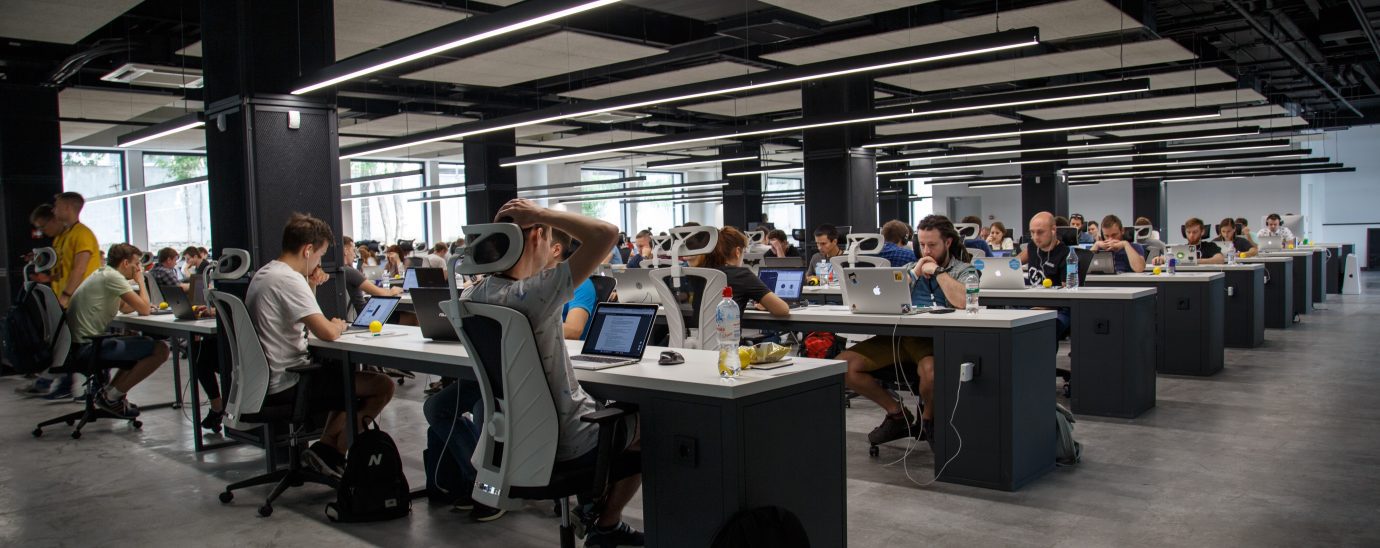Plugging the tech industry skills gap

Passenger’s newly appointed Head of People, Katie Killinger, discusses how businesses can help plug the tech industry’s skills gap.
As the technology industry continues to battle a mass skills shortage, Katie Killinger, Head of People at Passenger, shares her view on how businesses can inspire more people to expand their tech skill sets.
The technology sector has suffered from recruitment challenges for many years, and unfortunately, the pandemic has only intensified these issues, pushing many businesses to breaking point. 2021 saw ‘The Great Resignation’ sweep across the UK, with many workers planning job changes as the number of opportunities exceeded demand. According to research by Randstad, in November, 1 in 4 UK workers were planning a job change and those in the tech industry were among those who claimed to be most confident in finding new opportunities. There are no surprises there, as tech skills are indispensable for a huge spectrum of industries – but unfortunately, there simply aren’t enough sufficiently skilled workers to meet talent demand.
So why are there so few skilled workers? Lack of confidence is a key reason. When many people think of the tech industry, they see it filled with complicated data and formulas that take a specific mindset and mentality to understand. What’s more, there’s still a lack of gender diversity in the sector – therefore, a lack of desire for more women to become skilled in the industry. In addition, shifting COVID restrictions have meant valuable tech community meetups and events have had to be put on hold, so opportunities to learn from others through information sharing are being missed.

To help solve these problems, first and foremost, tech businesses need to empower their employees to lead by example and show others what they can achieve to help build their confidence. In addition, showcasing employees from various backgrounds is important to ensure they resonate with a wider demographic, such as a successful female senior employee or a worker who has progressed through the company without substantial prior tech experience.
It’s also important to highlight those people to future generations at an early age by collaborating with schools and universities, giving them role models to aspire to. At Passenger, we have a dedicated Inclusion Guild. This is a working group that puts initiatives in place, such as strategies to improve new-starter onboarding and to better identify diversity gaps, to help us build an inclusive workforce – and in doing so, an inclusive product.
In addition, keeping an open mind is key. Potential recruits may not have specific technical skills, but it doesn’t mean they can’t learn them with the necessary training and mentoring from existing employees. It can almost serve in that company’s favor to hire someone who doesn’t hold specific tech skills for certain roles, such as in Operations or Customer Services. This means they can come into the business with a fresh perspective and gain an understanding of tech specifics, so they can better explain them to clients – removing all elements of technical jargon.
At Passenger, we’ve hired various employees who don’t come from a traditional tech background to help public transport operators better understand our technology solutions. We’re also expanding our recruitment efforts outside of Dorset by advertising fully remote roles, helping us access a larger pool of tech talent across the country. Our workforce has thrived due to our broader recruitment strategy, with two-fifths of our employee base progressing to senior level positions since Passenger launched in 2015 – including within our engineering, design and customer teams.
In addition, we’ve helped broaden operators’ workforce skillsets through our services. For instance, when the pandemic hit last year, we hosted training sessions with 85 operator staff members to upskill them on content management tasks, helping those impacted by staff sicknesses.
To further plug the skills gap, we need to work together as an industry to reinstate more tech meetups and conferences. For example, Passenger has held developer conferences in the past, alongside sponsoring local tech meetups including PHPDorset, Mobile Dorset and hackbmth – all of which encourage businesses to share ideas and knowledge through talks and ideas.
READ MORE:
- Flexible resourcing looks to plug the IT skills gap
- 9 steps to overcoming the UK tech skills gap
- The cyber skills gap means closing the gender one
These events don’t solely benefit startups – someone who’s worked in the tech industry for over 20 years can gain just as much by discussing their own experiences and hearing others from those with fresh insights and new perspectives. Although we’re in a competitive industry, the success of our businesses relies on the success of the industry – and we can help each other by sharing valuable information and educating one another.
For more news from Top Business Tech, don’t forget to subscribe to our daily bulletin!